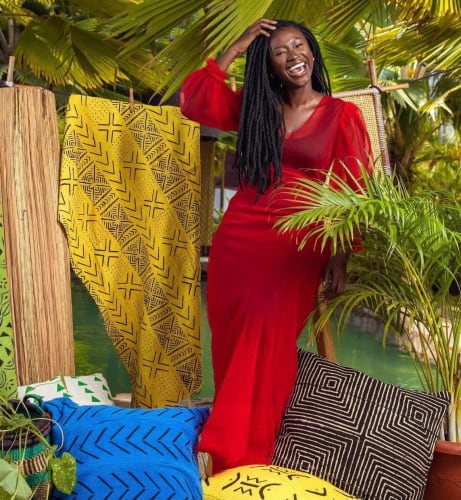Zahra Faye was born in The Gambia, but her family moved to the UK. She felt increasingly alienated there, and felt pulled to move back to Africa. At that time, Ghana’s arts, design, and startup scenes were gaining influence worldwide, so she decided that was the place to be. She became involved in cultivating local craftspeople and curating art, with her most recent exhibit Threads of Identity: Layers of Meaning exploring the narratives woven into each textile, revealing stories of resilience, identity, and belonging. Virtual Realities/Urban Navigations: Exploring Self in the Digital Era opening April 26th, 2024, showcases work by Gandor Collins and Kwabena Fordjour that merge Collins’ exploration of humanity’s relationship with technology and Fordjour’s vibrant depictions of Ghanaian transportation culture.
Shara Karasic: I was just looking at your Instagram. You’ve been so busy!
Zahra Faye: Yes, I've been so busy. It's great, right? It's been very interesting. I feel like everything is moving really fast, but I'm just glad I'm enjoying it because I get bored so quickly. So I'm quite glad that there's so much novelty all the time, a lot of newness, whether it's new art, new artists, new venues to look out for.
Shara Karasic: Tell me about yourself in a couple of sentences.
Zahra Faye: I would say I'm a woman who has multiple interests that vary across industries. But my main love has to do with the preservation of African heritage, as well as how we commune with nature.
Shara Karasic: How do you find Ghana?
Zahra Faye: I really, really enjoy being in Ghana because I feel like I've been growing quite a lot. My personal development, I think, has been on an upward trajectory since I've been in Ghana. There are some cultural nuances. There're still things I'm getting used to, although I've been in Ghana almost six years now. But it's somewhere that feels like it could be home, definitely.
Shara Karasic: What’s an example of a cultural nuance you’ve encountered?
Zahra Faye: Things like greeting from a certain side. Or, I was under the impression that for funerals everyone wears black, but I think if it's a child you're supposed to wear white. So some of those things we don't have back home in The Gambia. Although there are similarities between Gambians and Ghanaians, there're still some differences. So I’ve had to get used to those and keep learning the culture, and learning what makes them feel respected. It's just interesting that I've been here for quite some time and I'm still learning.


